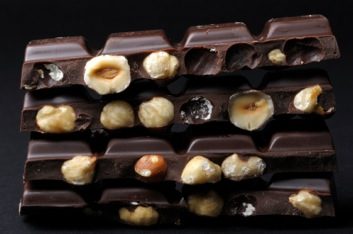Nutrition: Imagining eating a food, reduces how much you eat
It’s first thing Monday morning and I’m sitting at my desk imagining that I’m eating a huge chunk of dark

It’s first thing Monday morning and I’m sitting at my desk imagining that I’m eating a huge chunk of dark chocolate with roasted hazelnuts. Yes, right down to the last crumb of rich nutty goodness. No, I haven’t had a particularly stressful weekend. I’m just personally testing a new study that shows when you imagine eating a particular food, it reduces your actual consumption of that food (not that I have piles of chocolate sitting on my desk).
This study, done at Carnegie Mellon University in Pittsburgh and published by the prestigious journal Science, reverses what most of us think about a desirable food: That is, if you think too much about candy, for example, it causes you to crave it, and therefore increases how much of it you eat. Rather, the researchers found that there was a decrease in the motivation to consume a food when its consumption was imagined in detail.
The study found that people who imagined eating food, such as a cube of cheese or a pile of M&Ms, consumed less of this food. And only imagining eating that particular food’not just thinking about the food itself or imagining eating other foods’reduced consumption. These findings (with more detailed follow-up studies, of course) have the potential to change how we think about dieting, and refine the strategies that are recommended to people who want to lose weight.




